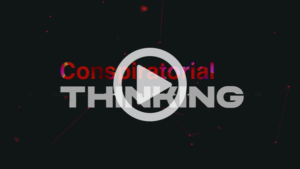Newsroom: NLP offers new, urgently needed lesson on conspiratorial thinking
Part of free e-learning platform Checkology, it teaches people to understand the allure of conspiracy theories and how to avoid them.
WASHINGTON, D.C., Jan. 19, 2021 — As recent events underscore how easily Americans can be influenced by false conspiracy theories, the News Literacy Project (NLP) is introducing a new lesson to educate students and the public about how conspiratorial thinking develops and its effects.
The comprehensive “Conspiratorial Thinking” lesson, included with NLP’s free Checkology® e-learning platform, seeks to help people understand the factors that allow conspiratorial thinking to take hold and conspiracy theories to flourish. It is available to educators and the general public. Preview the lesson here:
And for the best experience, register here to explore this and all Checkology lessons.
“The need to educate about conspiracy theories and why people believe them cannot be understated,” said John Silva, NLP’s senior director of education and training. “We must address the warning signs of cognitive dissonance and motivated reasoning — the thought processes that make us seek any information to support a belief.”
Key components of conspiratorial thinking
Renee DiResta, research manager at the Stanford Internet Observatory, hosts the lesson. It teaches people to understand key components of conspiratorial thinking.
- What a conspiracy theory is and what separates it from other kinds of misinformation.
- How it can be captivating despite a lack of evidence to support it.
- The real-world consequences and the political and social impact of conspiracy theories.
“More importantly, added Silva, “people will learn how to recognize forms of cognitive biases that make false information seem true. And they will learn how to evaluate sources and accept information as true only if it is verifiable and credible.”
“Conspiratorial Thinking” is the 14th Checkology lesson. The browser-based platform teaches students how to navigate the digital landscape by developing news literacy knowledge, skills and habits of mind. And, Checkology helps educators equip students with tools to evaluate and interpret information and to determine what they can trust, share and act on. It also helps people gain a better understanding of the watchdog role of the press and the importance of the First Amendment.
About the News Literacy Project
The News Literacy Project, a nonpartisan national education nonprofit, provides programs and resources for educators and the public to teach, learn and share the abilities needed to be smart, active consumers of news and information and equal and engaged participants in a democracy.
